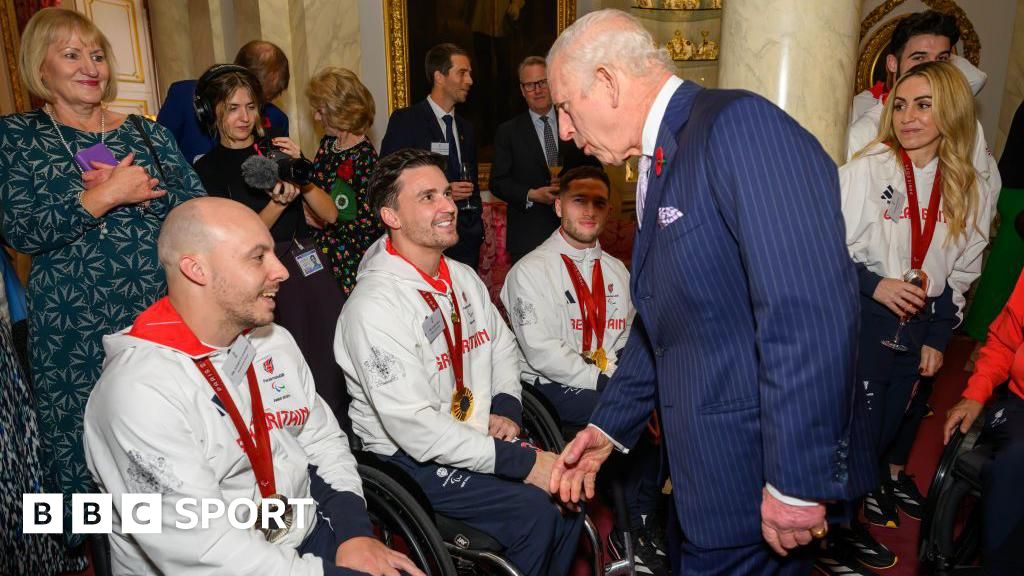World
Running Helps This Ultramarathoner Stay Sober and Give Back to His Community

Name: Stan Fleming
Age: 46
Hometown: Nashville, Tennessee
Occupation: Case manager at Still Waters, a treatment center for people who struggle with addiction.
Time Running: 5 years
Reason for Running: Running has enhanced my sobriety on many levels and, of course, has given me an opportunity to give back.
About five years ago, I was struggling to navigate my sobriety, and for help, I went to a fellowship and met Pastor Stan, who became my mentor. He invited me to his house and took me on a three-mile run. I wasn’t much of a runner at this point, but by the end, I felt really good—my body, my mind, everything. I instantly had a clear head.
As time passed, I relapsed. But I eventually ran into someone who convinced me to give treatment another shot and helped me check into Still Waters. There was a six-mile loop there, and I started running it. In the beginning, I ran about three times a week, going short distances. But after some time, I was able to complete the full trail.
After I left Still Waters, I made my way back to Massachusetts and joined the Boston Bulldogs, a run club that included people in recovery, and Coach Mike, founder of the club, asked me to run the Boston Marathon. In 2021, I trained and ran my first marathon in 3:33. That’s when I realized: Maybe I am pretty good at this running thing!
I also ran the Harborside Half in Newburyport, Masschusetts; the Austin Rattler Run, and many others, including a bunch of 5Ks. My experience with the Boston Bulldogs solidified my appetite for running, and I eventually decided to take my run into the woods and started trail running. A friend from Colorado talked to me about running through the Rockies, and I thought how cool would that be?
In recovery, service is a big part of living your life. You want to look out for the new guy, and make sure they have the same opportunities as you did to get well. To have this love for running and racing, and then create an opportunity for other people, there’s no greater gift or higher honor in the world. That’s why I started the Fighting Chance Project. We help underfunded people struggling with addiction get the treatment they need. My first race for the Fighting Chance Project was the 2023 Fall Creek Falls 100 in Tennessee.
There is a cost associated with getting addiction treatment and not a lot of people have the financial stability to keep themselves enrolled in the process. The Fighting Chance Project helps provide financial aid for treatment. We have raised more than $100,000 this year, which means double for those looking for treatment, thanks to a matching program.
To continue to raise money for Fighting Chance Project, I tackled the Life Time Leadville Trail 100 Run in August 2024. I hired a coach, Ryne Anderson, and used two three-month blocks to train. To help with our training regimen, we used Training Peaks and TrainRight. I trained about 10 to 15 hours a week.
I also ran with Brian Williams, who became a Still Waters alum. He joined me for my recovery runs just about every weekend while I was at work. With two weeks left in his program, I asked him to pace me during the race.
My nerves were quite high the morning of the race. I was confident in my training, but I had raised a lot of money and didn’t want to leave with a DNF. As soon as the gun went off, my worry seemed to vaporize, and it was finally time to run. I felt super strong, but remembered that going out too hard in the beginning is a common problem of mine and was able to control my effort well.
I battled through blisters and stomach issues, but shortly before 10 a.m. on Sunday, with Brian, I crossed the finish line. Although getting through that night was one of the toughest things I’ve ever done, I’m beyond grateful my crew pushed me to finish.
Running has helped me overcome so many other obstacles in my life. It has helped with my sobriety and compassion for others. We think about running and getting in shape, or our bodies looking better and stuff like that, but I want people to know that the opportunity to give back has been one of the greatest blessings in my life.
These Tips Helped Make My Running Journey a Success:
1. Be patient with your body
We can’t go from not running to running 10 miles a week. That seems to be the pattern for most—wanting instant results. It took a long time for my muscles and tendons to build up strength and endurance to support that kind of effort on my body. Be patient and results will follow.
2. Find a companion
Whether a coach or a friend, find someone that has been running and has experience so you can get some advice. It’s nice to lean on others who can provide you with a sense of relatability.
3. Help and inspire others
People can have a rough few days, and when you are there to help get them over the hump and move forward goes a long way to feeling good about yourself.
Stan’s Must-Have Gear
→ Altra Lone Peak Running Shoes: I love these shoes because they fit me perfectly, they don’t give me blisters, and they are insanely durable.
→ Garmin Fenix 5 Plus Watch: My watch keeps track of all of my data and is fairly easy for me to use, which is key because I’m not tech savvy!
→ Salomon Hydration Pack: This pack carries my water, all of my gear, and rests comfortably on my body. It also disperses the weight evenly, which makes me run a lot smoother.
→ Craft Hat: I love this. When you run, especially 100-plus miles, you need something to keep the sweat off your face, and my performance hat from Craft does exactly that, while also keeping the sun off my face.
Emily Shiffer is a freelance health and wellness writer living in Pennsylvania.







